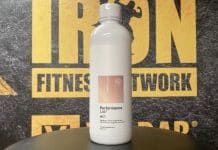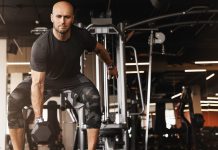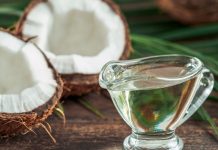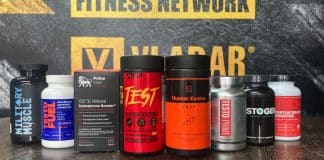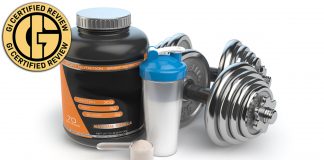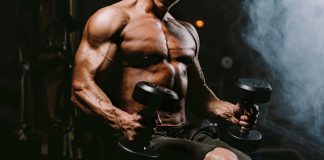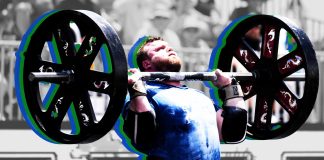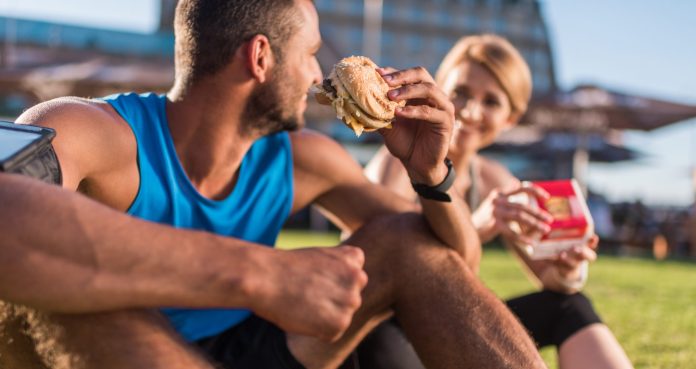
Kill those hunger cravings!
Do you ever feel like you can’t stop eating? No matter how much you want to push yourself to stick to that diet, you just can’t stop? Notice how it might be hurting your gains. This idea that we’re always hungry is not unique and you aren’t alone. It isn’t necessarily something you are doing wrong, just something you might not notice. But through awareness and constantly giving your body the proper fuel and tools it needs, you can better tackle those hunger cravings to only see the best results. And by knowing how to stop it, this will prove to be effective in the long run.
Hunger is that sign our bodies give us when we realize we need more food. That pit in your stomach is uncomfortable and we are constantly finding ways to keep ourselves full. And too often we find ourselves always eating and we just can’t stop. But your body isn’t always hungry. There are reasons for why you can’t stop eating.
We’ll get into those in this article so you can better tackle those cravings and avoid any of those unwanted feelings. For those trying to lean out and sculpt that shredded aesthetic, it is important you know just how to properly form a diet plan that will keep you full so you aren’t constantly eating. Let’s get into why you might always be hungry and the best ways to stop it.
Why You’re Always Hungry
That feeling of constantly being hungry can be a killer and for most us is just something we can’t stand. What you will notice is that with some of these reasons, it is because you aren’t getting enough of certain things we need to help keep us full. Let’s take a look at some of the reasons why this is the case.
-
Not Enough Protein
Protein is essential in helping us feel full and if you are someone who doesn’t eat enough protein, this can really be a gains killer. Without the proper amount of protein in your diet, that empty feeling will never go away (1). For those us who lift and want to see the best gains, protein is also essential in muscle growth and recovery. So by neglecting protein, you are ultimately only hurting your overall gains.
-
Not Enough Water
Hydration is another key factor in a healthy lifestyle and for athletes and those who engage in regular activity, it is important to realize that not enough water can also lead to that empty feeling in your stomach (2). You’ve probably heard that you should drink a glass of water before you eat a meal. This controls how much you eat so you don’t over eat. The reason is that drinking water can fill you up. By constantly drinking, you will feel more full and eliminate those cravings.
-
Too Much Exercise
Your training plan should reflect a good lifestyle and too much of it can cause you to constantly eat. High intensity exercise will especially make you more hungry since you burn way more calories. With too many calories leaving, your body needs more nutrients to thrive. So while exercise can actually aid in keeping you full, too much of it can cause unwanted cravings and hunger (3).
-
STRESS!
Stress is a gains killer and too much stress can increase your appetite since cortisol is known to induce cravings. Working on certain approaches like meditation and mindfulness can decrease stress and help eliminate those cravings so you don’t feel a desire to eat (4).
-
A Lot Of Refined Carbs
Refined carbs do not contain a lot of fiber and therefore are digested rather quickly. These can give you a false sense of fullness so you feel hungry a short time later. Since these also spike your blood sugar, it will lead to a crash which ultimately triggers those hunger hormones to fire up, since low levels can cause this.
-
Not Enough Fiber
Fiber is incredibly important to help keep you full while also aiding in digestion. Without eating whole foods that work to keep you full, you reduce the amount of fiber you take in, thus leading to those cravings. By slowing down your rate of digestion, you allow yourself to feel more full for longer (5).
Best Ways To Stop Those Cravings
The best ways to stop those cravings are to address these issues above in a healthy and effective way. Some solutions to these problems are easy and can make all the difference.
When it comes to…
Protein: Make sure you get enough protein in each meal to keep you full until your next one. High protein foods are important to put into your diet and nutrition plan.
Hydration: Drinking enough water throughout the day will promote satiety and will keep you from becoming too dehydrated, especially as athletes working hard.
Exercise: Focus on resistance training and structure your plan so if you are performing cardio and high intensity training, you balance it out so you don’t do too much.
Stress: Finding ways to cope with stress is very important and will only work for your benefit. Things like meditation, yoga, and other mindfulness exercises can be a huge help here.
Refined Carbs: Limit the amount of refined carbs and if you do choose to eat them, make sure to include protein and foods with fiber into this meal.
Fiber: High fiber foods are key and can be a nice addition to any meal. Ensuring you get the right amount of fiber will help eliminate those unwanted cravings.
Wrap Up
That feeling of always being hungry is a pain and can hurt our gains. By knowing what causes it and the right approaches to solve it, you will better set yourself up to tackle those unfortunate cravings. Working to make sure you only follow the best plan is challenging but will pay off in the long run. Plus, you won’t be disappointed by the results.
Let us know what you think in the comments below. Also, be sure to follow Generation Iron on Facebook, Twitter, and Instagram.
*Images courtesy of Envato
References
- Dhillon, J.; et al. (2016). “The Effects of Increased Protein Intake on Fullness: A Meta-Analysis and Its Limitations”. (source)
- Popkin, B.; et al. (2011). “Water, Hydration and Health”. (source)
- Dorling, J.; et al. (2018). “Acute and Chronic Effects of Exercise on Appetite, Energy Intake, and Appetite-Related Hormones: The Modulating Effect of Adiposity, Sex, and Habitual Physical Activity”. (source)
- Nakamura, C.; et al. (2020). “Neural effects of acute stress on appetite: A magnetoencephalography study”. (source)
- Lattimer, J.; et al. (2010). “Effects of Dietary Fiber and Its Components on Metabolic Health”. (source)




